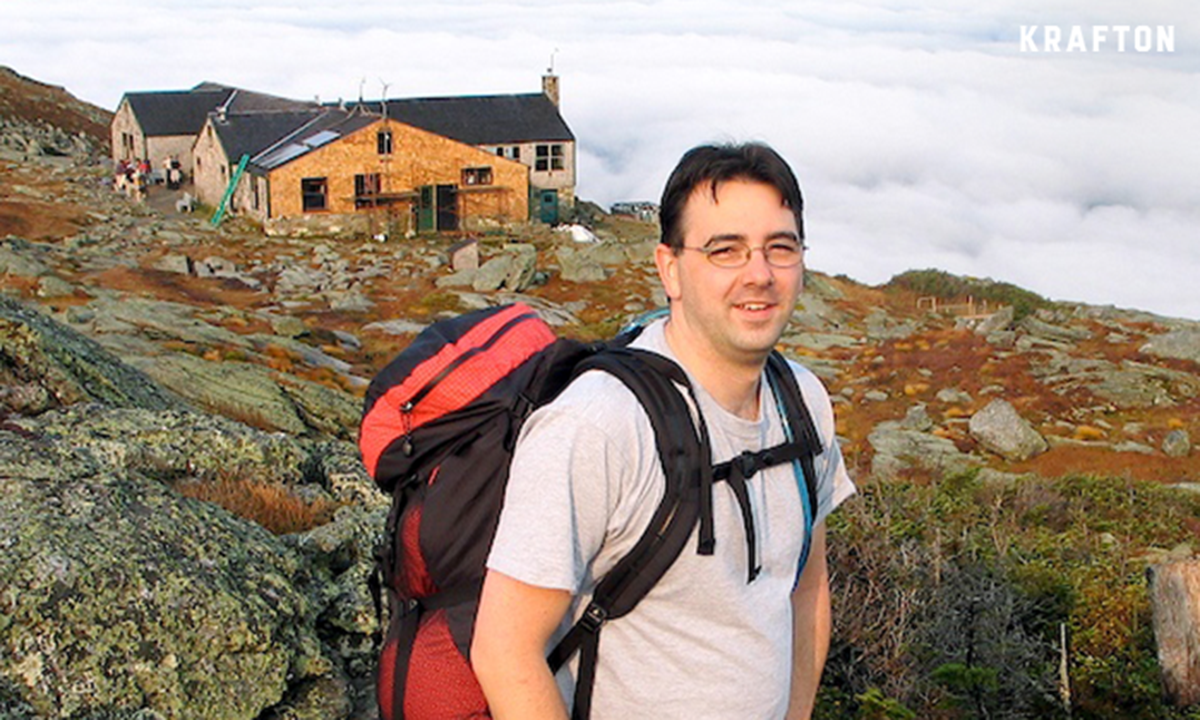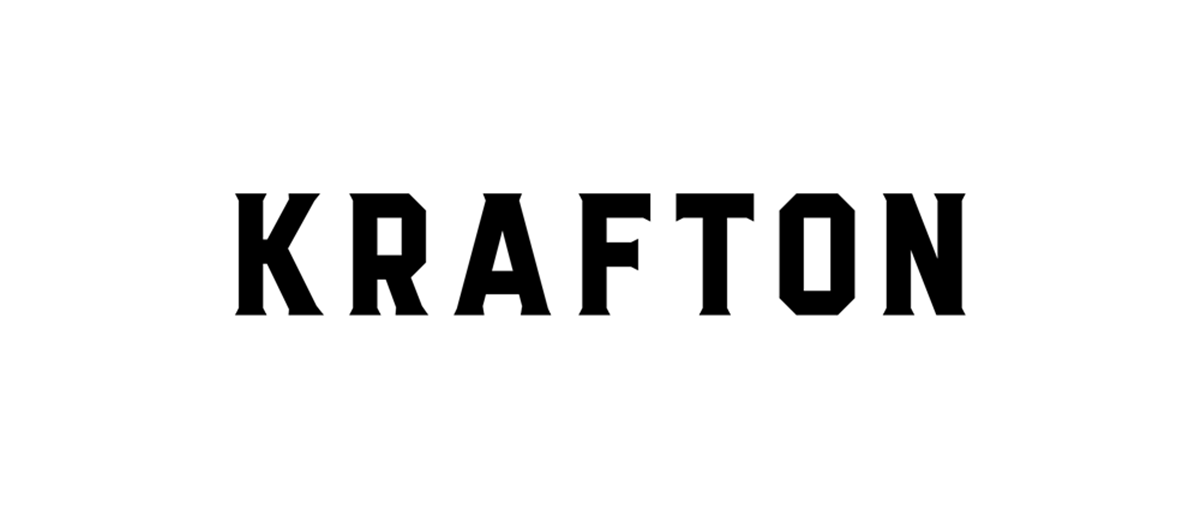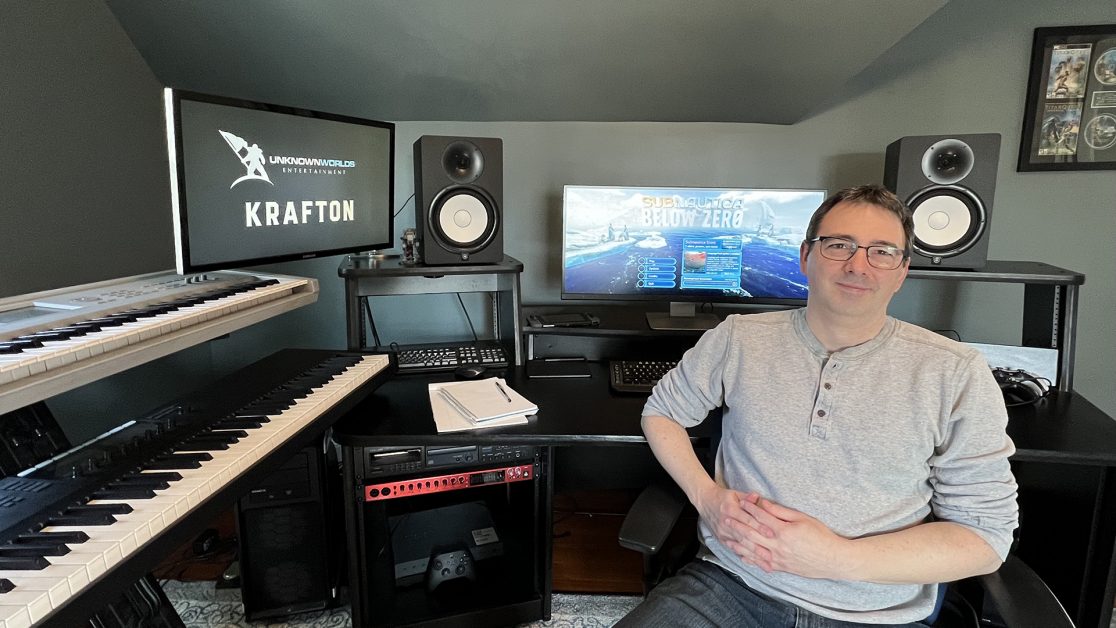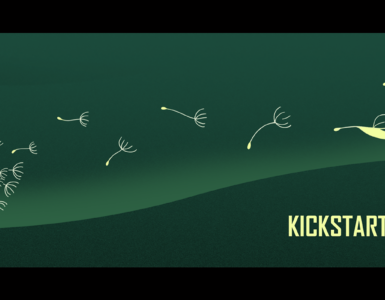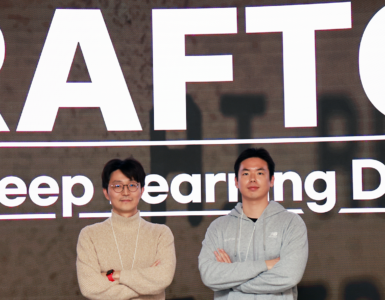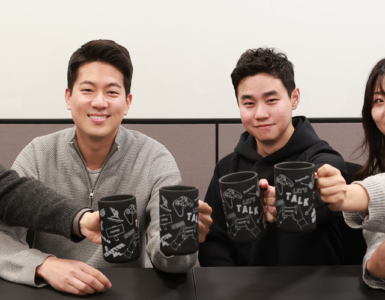An interview of Unknown Worlds Director of Development Mike Verrette
Taking players on a visceral and emotional journey to places that don’t even exist in our world and letting them experience things that they could never experience in any other format. Mike Verrette says this was the charm of game development that fascinated him to jump into the game industry almost two decades ago. As the director of development at Unknown Worlds, which became one of the independent studios of KRAFTON last year, he’s working on empowering the developers to create the things they dream up. Read on to find more about Mike and Unknown Worlds.
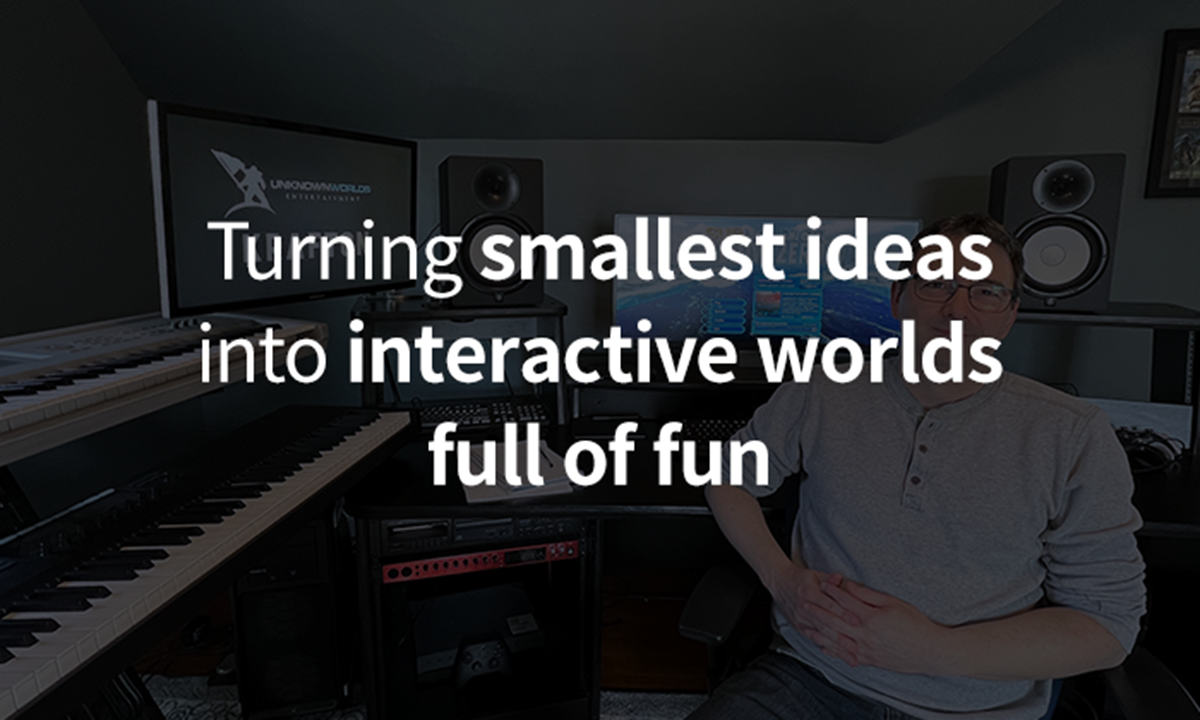
Hi! Please introduce yourself to our readers.
Hello! My name is Mike Verrette and I am part of the team at Unknown Worlds (UW). UW is a globally distributed studio, and I am based out of Boston, Massachusetts in the northeastern part of the United States.

What are your roles and responsibilities at UW?
I am the development director at the studio and am lucky enough to work with all our talented project teams. My job is focused on ensuring the teams have the resources, time, tools, and technology they need to be successful and make amazing games. The job can be quite different day to day which is one of the things I really enjoy about it. Some days I might be focused on hiring or onboarding new team members. Another day may have me working to establish a relationship with a new external partner. Some days I get to be very hands-on with a team working on solving a challenging problem, and other days I might be more focused on the big picture and working on our studio project roadmap.
You started your career from the sound/audio sector of the media industry. When and how did you make your entrance into the gaming industry? And how did you become a game producer?
Like many developers, my path to getting into games was not a direct one. My formal education was in music performance and recording technology. The first part of my career was focused on audio post-production for television and radio. During that time, I was introduced to a local gaming studio called Iron Lore and did some sound effects work for them on a publisher demo. I immediately fell in love with game development and knew I wanted to shift my career in that direction. A few years later Iron Lore signed a deal to make their first game, “Titan Quest,” and in early 2004 I joined the team.
A year and a half into development on Titan Quest I was presented with an opportunity to take on a production role for the project. The studio had grown from 10 developers in 2004 to almost 40. The project was becoming more complex milestone by milestone and they had not found a producer. I had done some production work in my previous life outside of games and they thought I would be a good fit for the role. I remember it being an extremely difficult decision to make. I would be leaving the audio discipline which I loved, studied, and worked in for a decade to take on a new role where I had little experience. Ultimately, I knew that the team really needed a producer, and I was excited to learn more about game development. I switched to the production role and haven’t really looked back since.
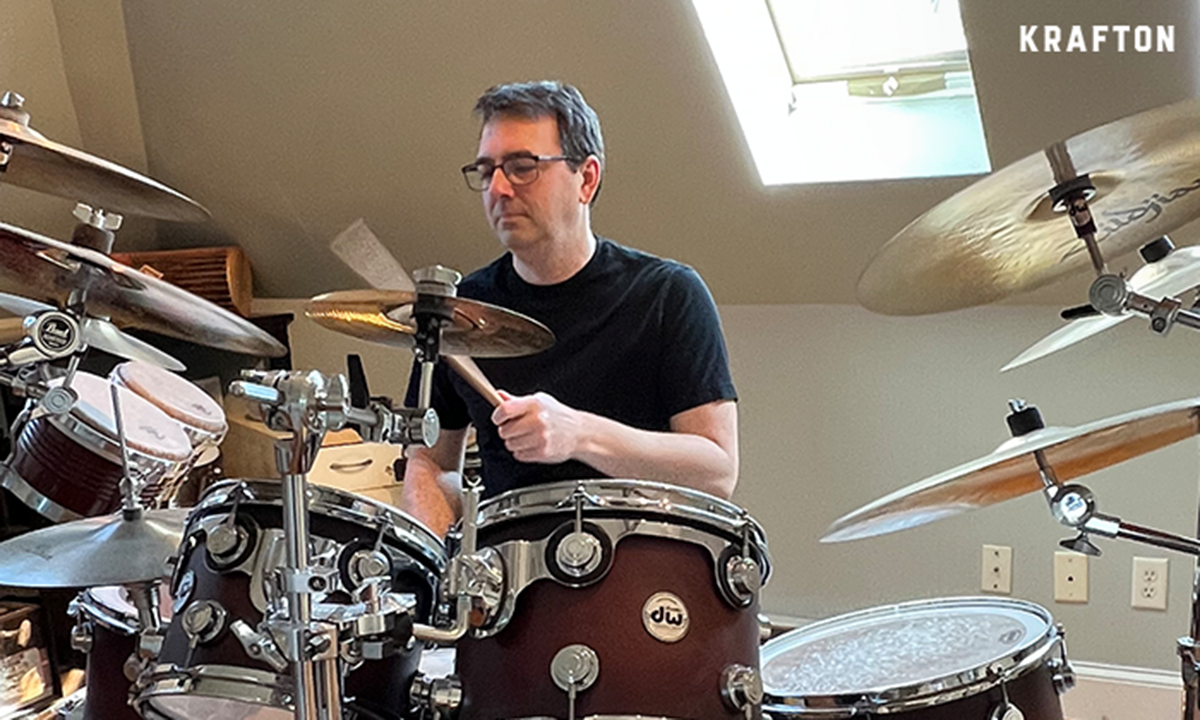
Which job did you like more? The one in the music industry which was full of creative works, or the other management position in the game development sector? How would you compare the two?
It’s a great question. Both roles were in the entertainment industry, both were about bringing joy and delight to people and taking them on a hopefully meaningful emotional journey. In that way they were very similar.
The biggest difference between being a creative content contributor and working on the management side is about how you impact the overall project. I’ll use a construction analogy ─ As an audio designer and composer I was creating bricks that were part of the structure. As a producer it was more like being an architect helping to design the blueprint of the building. Both are essential to make a strong building, but the work is very different.
In terms of which I like better, it’s hard to say. Probably production because that is where I chose to stay, but music and audio is still in my DNA. I still try to get involved in those aspects of the projects I work on whenever I can.
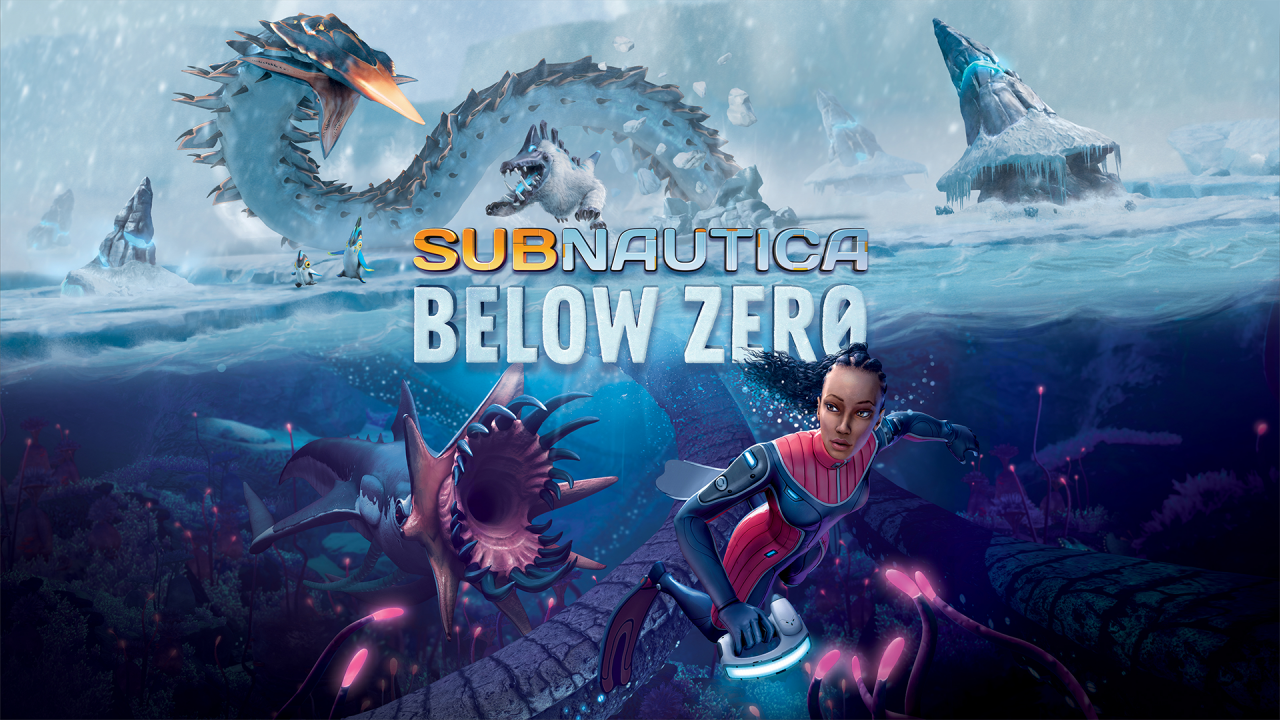
Which part do you like the most in making games?
The thing I love most about game development is that you start from a group of talented creative individuals and the smallest of ideas and turn that into entire interactive worlds full of characters, and story… and fun!
Game development is often about creating everything from nothing. One of the best parts about this industry is how rapidly it evolves ─ constantly. Every time you start a new project there are new challenges and opportunities… new platforms, innovative technologies like VR or motion tracking, new graphics hardware, new mobile hardware, better game engines.
What made you decide joining UW?
In 2007, I left Iron Lore and joined another local studio, Harmonix. This company had just shipped a game called “Guitar Hero” and they were looking for a producer to help them with a new, more ambitions music game called “Rock Band.” With my audio background I knew the studio would be a great fit for me. I spent 13 years at Harmonix, joining the management team as their Vice President of Development. Harmonix is a unique and amazing studio, and I am super fortunate to have worked on so many games with the folks there.
Towards the end of 2019 after more than a decade making dozens of music games, I found myself needing a change. I wanted to work on something new, in a new genre, with a new team. Around the same time an old friend (Iron Lore engineering lead and UW co-founder) Max McGuire reached out.
Unknown Worlds was chasing the success of their breakout hit Subnautica and was interested in growing the studio and expanding further into console development. He introduced me to their president, Ted Gill, and asked if I would chat with them about the challenges they were facing. That first conversation turned into an interview which eventually turned into an opportunity to join the team.
I have a tremendous amount of respect for Max and co-founder Charlie Cleveland who I had gotten to know over the years. I was particularly drawn to the studio culture they had created their commitment to open development, and I was a HUGE Subnautica fan! So, in March of 2020 as the world was bracing to shut down due to COVID I joined the team at Unknown Worlds.
When you decided to join UW, how did you like its games?
Like I said, I was a big Subnautica fan before I joined the studio. In fact, every year when I would come to San Francisco for Game Developers Conference (GDC) I would try and catch up with Max and have dinner. I’m sure he wanted to talk about everything but Subnautica but I was constantly asking about new game features and if they were going to add a mini-map to the game.
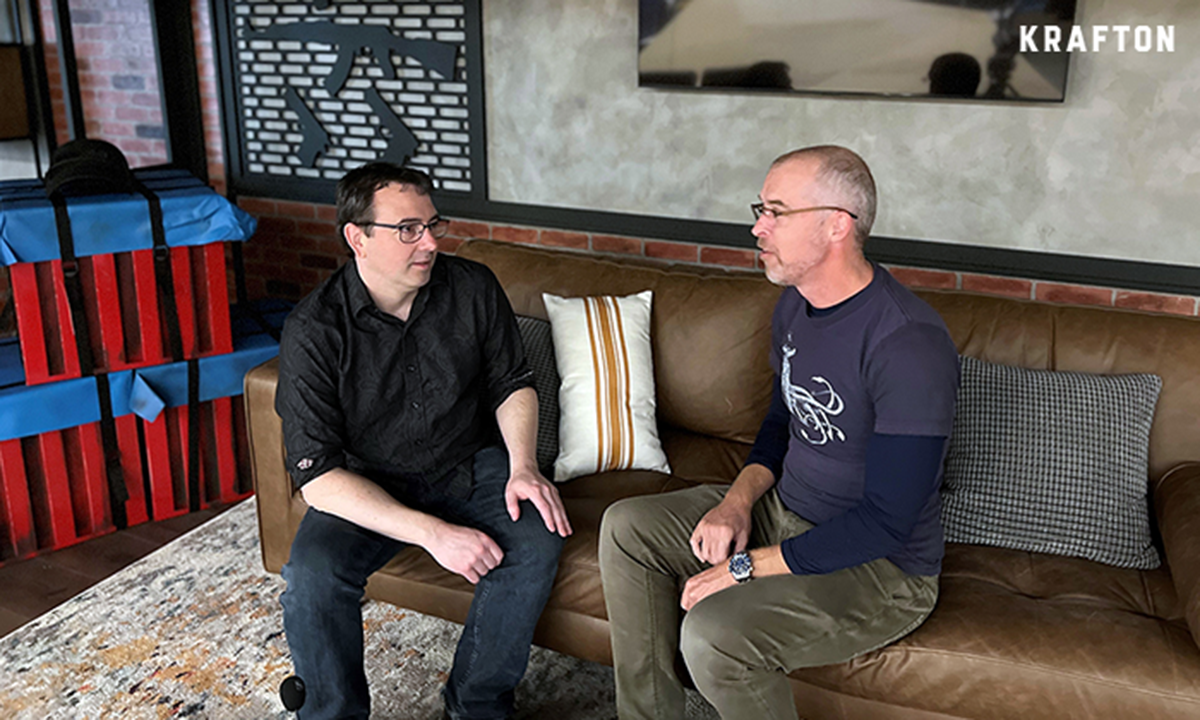
Could you introduce your teams and colleagues at UW?
UW is a relatively small studio with many projects and initiatives in the works. Our core team consists of 45 amazing full-time developers and our strategy is to develop key partnerships with capable external teams to allow us to remain small and work big.
We currently have three major initiatives ongoing at the studio. We have a Subnautica/Below Zero team working on patches and updates for the franchise. We have a Discovery team that works somewhat similar to KRAFTON’s Challengers Dept. initiative. That team is working hard on developing new game concepts and ideating on what might come next in the Subnautica Universe. The third team we have, and our current studio priority, is “Project M” which we are excited to launch into early access later this year.
As a studio we also work hard to try and give back to the industry and the community where we can. We have a paid volunteer program that allows our staff to get away from their desks and give back to their community a couple of times a year. We started a paid internship program where we can bring in junior folks and college students with aspirations to get into the games industry and have them work alongside our teams on shipping features and content. We have a diversity focus with this program, helping bring more individuals from underrepresented groups into the industry. We also strongly encourage our teams to participate in events like GDC and other ongoing improvement through an annual education stipend.
As you said, UW is known as a fully distributed company. What was it like to work “fully remotely” at UW, even before the COVID and social distancing, etc.? How does it work?
Yes. UW is a fully distributed company. We have no permanent office, and our studio has team members residing in 13 different countries across five continents and 11 states in the US. Unknown Worlds was founded in San Francisco, California and, until last year, we kept an office there. But even in the early days most of the studio was distributed.
Some would argue that the biggest requirement for remote development is excellent communication. I believe it’s trust. You have to trust that everyone on the team will remain focused, motivated, and support everyone else to the best of their ability. Working remotely also requires more patience and flexibility than being on a co-located team.
Sometimes we use the term asynchronous development to describe how we work. To borrow an analogy from a colleague of mine ─ if you need something when you work in an office, it’s like hunting. You can actively go get the thing that you need. With a distributed team it’s more like fishing. You want to keep a bunch of lines in the water and then focus on the lines with the fish when they bite.
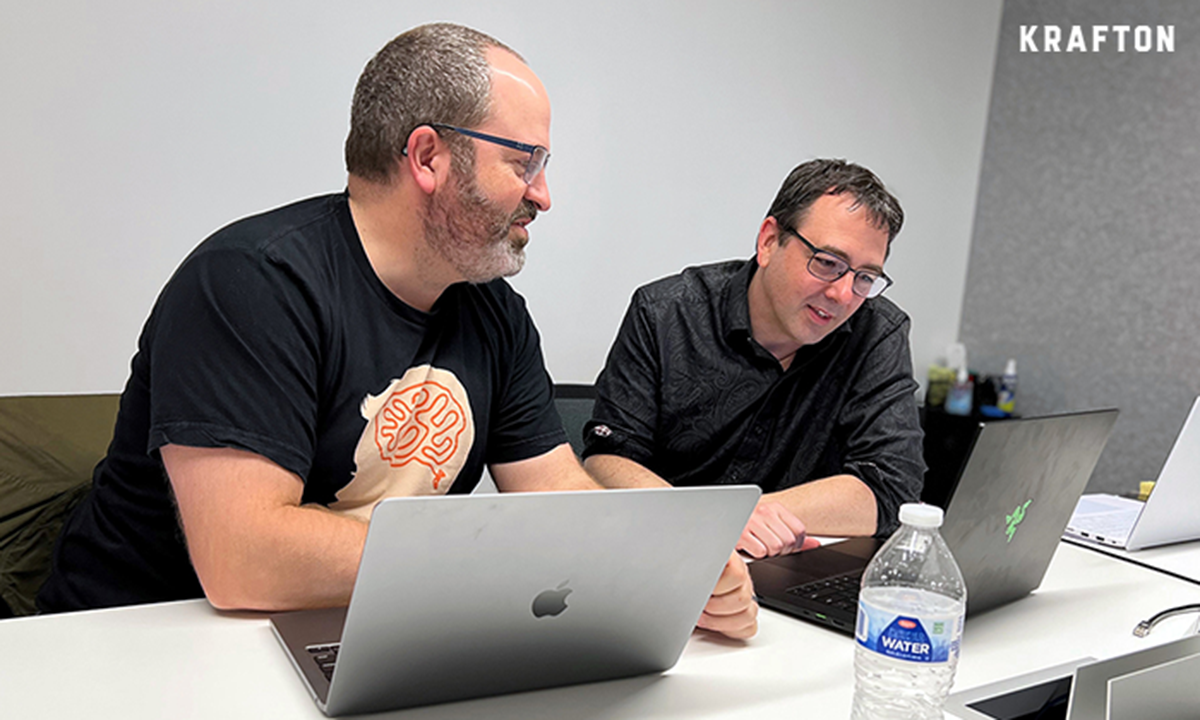
Could you introduce about UW’s “open development?”
Absolutely. UW has always practiced and advocated for open development. Today when we hear the term open development in games we often think of programs like Early Access on Steam where players can purchase a game before its “done.” This gives players an early opportunity to interact with the developers and potentially shape the direction that game takes.
Fundamentally, open development is derived from agile development methodologies like Lean where you focus on rapid delivery early in the project’s life cycle, amplify your learning by working directly with your players, and delaying decisions as much as possible to leverage data from player validation. Subnautica and Below Zero ran successful early access programs on Steam where players could download a daily experimental build in addition to the official early access release builds. We publicly shared bug and feature backlogs with the community. These things allowed us to get immediate reactions from players on the features and content we were implementing. It also allowed us to see bugs and other issues with the game that you may otherwise miss until you have thousands of players playing your game.
On the business and publishing side open development also provides the opportunity to establish grow your community before your official launch.
What are the most satisfying moments working at UW?
On a large scale I think the most satisfying moments at UW are the times when we are able to accomplish things as a small independent team that even huge teams struggle with. Seeing the studio launch Below Zero and Subnautica on multiple platforms across 37 SKUs with a team of less than 30 folks was really satisfying.
Day to day I think it’s the simpler moments that are really satisfying. The times when someone on the team steps forward and reaches outside their comfort zone to try and make the game they are working on better. It’s also satisfying when you get to see the impact of having a globally diverse team of developers on a project. The moments where everyone’s individual values and cultures influence our values and cultures as a studio. Those are the times when I feel most fortunate to be a part of UW.
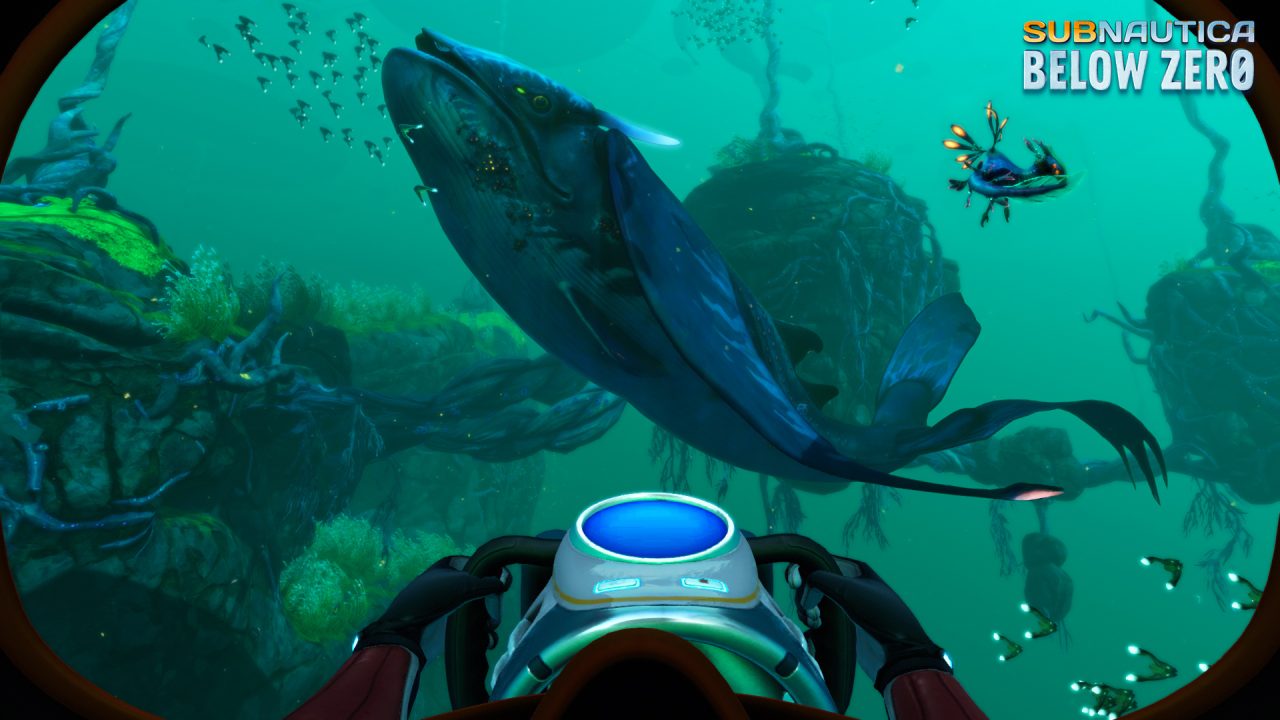
Do you have any specific kind of game in your mind that you want to make one day?
I think the world is ready for new heist game. Something like “The Thief” series but modern times. A game that is really immersive and moody and has a lot of implicit storytelling, A game where there are multiple ways to reach your objective, like the early “Deus Ex” games.
What do you anticipate from working with KRAFTON?
I am really looking forward to our new partnership with KRAFTON. The company’s deep knowledge in running live service games will be immensely valuable in the coming months. We have been constrained on development and publishing in so many ways as a smaller studio. I think that constraint has taught us about efficiency and what is most important about our games.
Working with KRAFTON will allow us to take those small studio sensibilities and combine them with KRAFTON’s resources and reach to ensure that we continue to make amazing games AND that we get those games in front of more players everywhere in the world. That is one of the things I am most excited about.
Everyone I have met at KRAFTON HQ and at the studios in the US has been incredibly welcoming, supportive, and eager to jump in and help out. It feels like we are off to a great start.
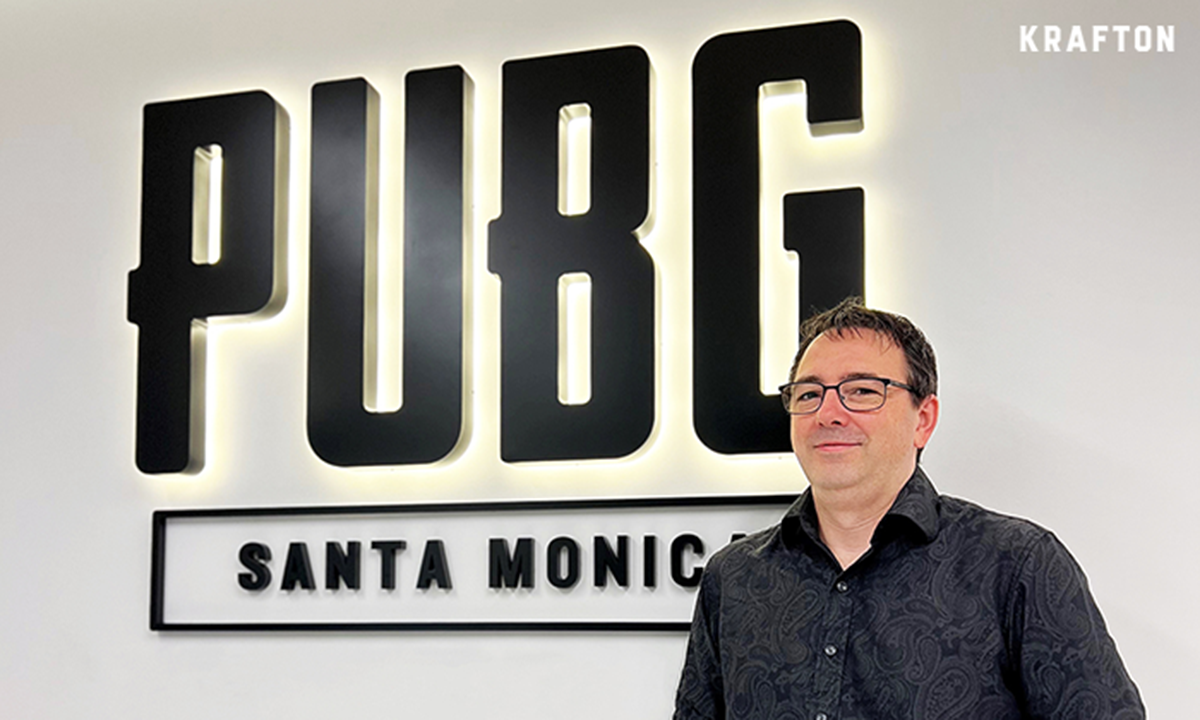
Is there a specific type of people/developers you want to work with at UW?
We are always looking for new folks that we are excited to make games with. We most enjoy working with developers that are highly motivated to get involved with the project and the team in ways that extend beyond just their job titles.
Great ideas can come from anywhere ─ literally. And we strive to create a studio culture where those ideas can be heard from everyone on the team. So, it’s really important that we work with developers that are willing to put those ideas out there.
Passion is one of the few things that every great game has ─ from the smallest indie hit to the largest AAA franchise. The people behind the most successful games care deeply about their craft and the things they make every day. Those are the types of developers we have and want to see more of on the team at Unknown Worlds.
What’s your personal goal as a member of UW and the gaming industry?
That is a tough question. I think my answer is the same for UW and the industry as a whole. I always want to be doing work that I believe moves the industry forward in some way. Whether through delivering meaningful innovation in gameplay, telling a compelling story, or working to integrate technology and leverage it towards more compelling player experiences. As game developers we have this unique opportunity, and maybe even responsibility, to put something meaningful out into the world every few years. We are digital entertainers. We speak to millions of players every day through our work. I think it’s important that we have something meaningful to say.
